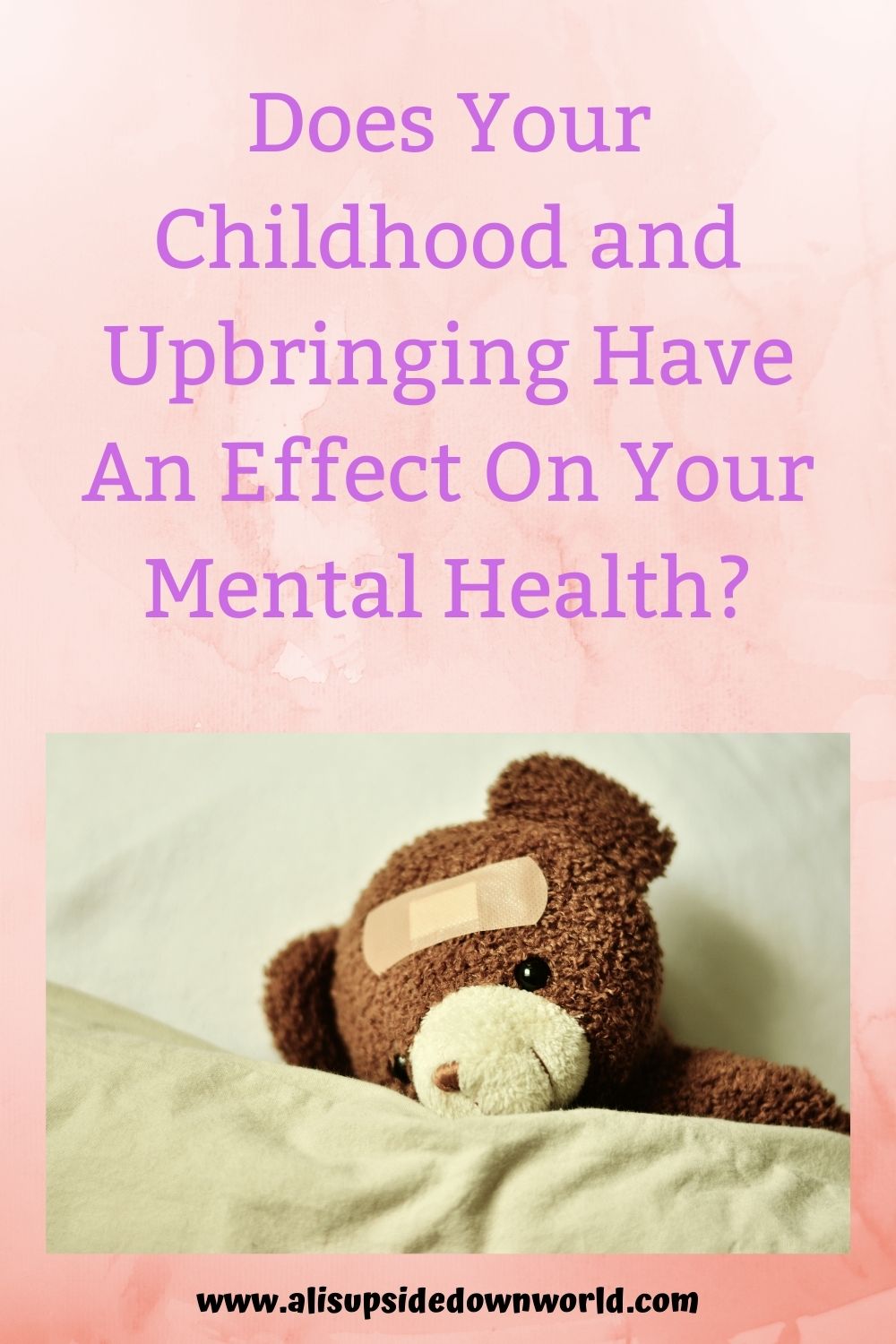
Does Your Childhood and Upbringing Have an Effect on Your Mental Health?
This blog uses affiliate links and banners. If you purchase something from them I will receive a commission at no cost to you. I am part of the Amazon Associates program. As such, I receive a commission on qualifying products.
*This is a collaborative post*
People often experience mental health problems, but they choose to sweep their feelings under the rug for fear of stigmatization. You need to express your feelings and let them off your chest. It can help prevent holding grudges and relieves you of the offender’s burden. In all honesty, letting the hatred and emotions go will significantly impact your health more than the other person.

Therefore, it is crucial to monitor your emotional and mental well-being to ensure that you are in good mental health.
The Childhood Experience
Do you remember your childhood with a lot of fondness? Though you may not realize it, there are some childhood experiences that you had as a child that influenced your current behavior and personality.
For example, there are some words that you were told by your parents, friends, or even siblings that still impact your mood and emotions if they are mentioned. These are the types of incidences that can cause pent-up feelings and are not great for your physical, emotional, or mental health.
The Mental Health Effects
These experiences may cause resentment and hateful emotions within close family units. These emotions can then graduate into anger. If the bitterness is not tamed, it can lead you to do acts that you will regret in the future.
The hurtful words may also make you isolate and withdraw yourself. This withdrawal may have an anxiety impact on body or lead you into depression. It makes you unsettled and leaves you in fright. These effects, if not treated, will deteriorate your health further.
Warning Signs of Mental Health Problems
Once you notice a change in behavior, mood, and emotions, you should further analyze your feelings to ascertain your state of mind. It can be a simple check that you can carry out in your room. You only need to examine how you have been handling emotional situations:
- Have you been making irrational decisions?
- Has your social life recently changed?
- Do you prefer isolating yourself rather than spending time with people?
- Are you easily irritable?
Be sure, to be honest with your answers to ascertain your mental health position. Do not be too hard on yourself but choose to accept the situation. It will help you be receptive to the help that is given to you. Besides, it can help you learn how to manage and control how you react and make decisions in the future.
Follow Up Therapy
You will then have to see a psychologist or a trauma specialist who will help you identify the root cause of your problems. You will also need to have regular appointments to check in with the psychologist to keep tabs on your progress. Though you will be given some drugs, the therapy sessions play a significant role in ensuring that you ultimately deal with the problem’s root cause.
Mental health care is an integral part of our daily lives. You need to take time and make peace with your past. Find a professional who will help you talk about your childhood experiences, even the most insignificant details, to iron out any past issues. Finally, be strong – it always passes.

Stay safe everyone.





4 Comments
TheQuietGirl (Anissa)
This is such an important topic to bring light to, really glad you made a post about it, it’s going to be really helpful. I saved your pin as well. Great post!
Ali Duke
Aww, thank you! I hope that it does help someone.
Jodie Paterson
I definitely think that our childhood affects our mental health. Such an important topic, it’s nice to see it covered!
Ali Duke
I think even the small things that we think nothing of have a bigger effect on us than we realize too. I just hope some of this helps someone.